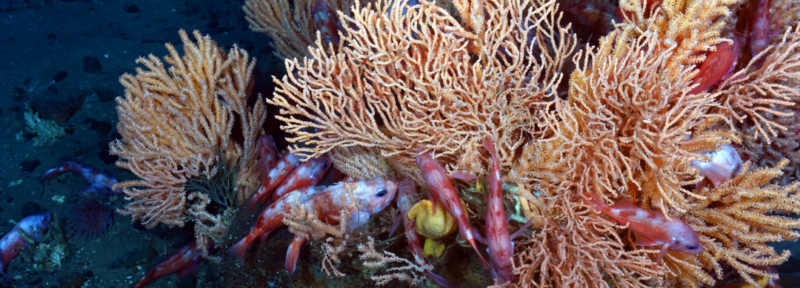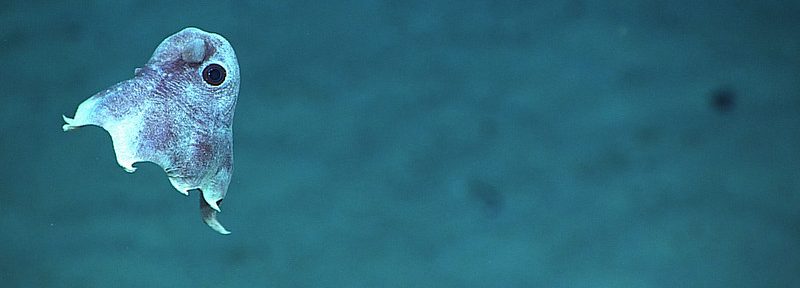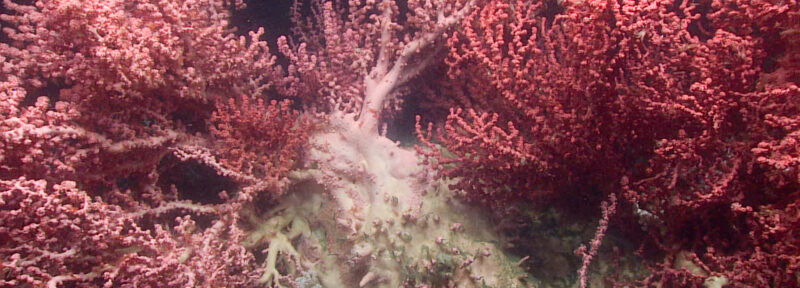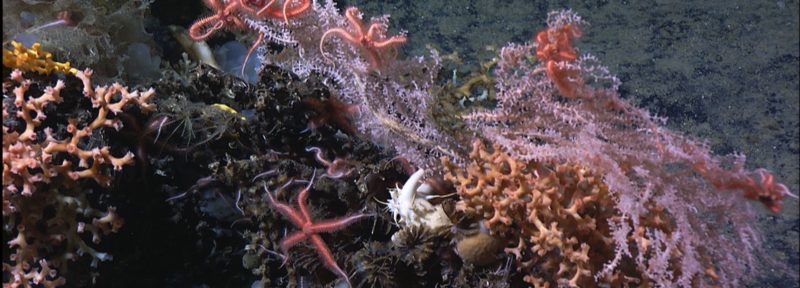Canadians ask Federal Government to Support Moratorium on Deep Seabed Mining
OTTAWA—Oceans North, MiningWatch Canada, the Canadian Parks & Wilderness Society (CPAWS), Nature Canada, Northern Confluence, and West Coast Environmental Law have relaunched a parliamentary petition calling on the Federal Government to help establish an international moratorium on deep seabed mining (DSM). The parliamentary petition was originally launched in June 2021, but was closed due to the election.
DSM is an emerging industry seeking to mine metals such as cobalt, manganese, nickel, and copper from the seafloor in both domestic and international waters across the globe. Although DSM is not currently occurring, efforts at the International Seabed Authority (ISA) to establish mining regulations for the international seabed could open up the seafloor to irreversible destruction as soon as 2024.
Canada should not allow an industry in international waters, the common heritage of humankind, that is not permitted currently in our domestic waters. Provisions in Canada’s Fisheries Act limit the amount of suspended solids industry can release into water with fish, which effectively protects our territorial waters from this unacceptable practice.
Allowing DSM would also be contrary to Canada’s international commitments. Canada is a member of the High Level Panel for a Sustainable Ocean Economy, a worldwide conservation initiative that has called for a moratorium on the granting of exploration licenses in areas beyond national jurisdiction and a halt to the development of the draft regulations, standards, and guidelines at the ISA. The panel’s 2020 report is definitive that DSM cannot be considered sustainable. Canada is also party to numerous other international commitments stressing the importance of ecosystem resilience, sustainable development, and responsible ocean stewardship—all three of which DSM undermines.
As a member of the ISA and global leader, Canada has an opportunity to demonstrate its commitment to conservation and join the many other countries, as well as civil society groups, seeking to put an end to deep-sea mining before it starts. Now is the time to prioritize biodiversity and ecosystem resilience before it is too late.
Organizational Statements Below:
Susanna Fuller, Vice-President of Operations and Projects at Oceans North
Canada has a responsibility to uphold internationally the values of good governance, environmental stewardship, and equitable sustainable development that it promotes at home. Our international commitments reflect the importance of protecting the ocean, which would be completely undermined by allowing deep seabed mining in areas beyond national jurisdiction. It is categorically irresponsible to increase extraction from already overburdened ecosystems. What will we have left for future generations?
Catherine Coumans, Co-manager and Asia-Pacific Program Coordinator at MiningWatch Canada
As awareness grows of the threat this new extractive industry poses to life in our oceans, the calls for a moratorium on DSM are expanding from scientists to the European Parliament to Pacific communities whose livelihoods and ways of life will be affected, and who are responding to this risk by calling for a ban on the practice in national and international waters.
Gauri Sreenivasan, Policy and Campaigns Director at Nature Canada
Scientists are increasingly raising the alarm about the high risk of biodiversity loss in the fragile deep-sea ecosystems being targeted for mining, ecosystems we have barely started to explore. Scientists also warn that the destruction of these habitats—which took millions of years to form—cannot be remediated, mitigated, or off-set. Ocean biodiversity is too valuable, for nature, climate and people’s well being, to take this risk.
Alex Barron, National Director Ocean Program at Canadian Parks and Wilderness Society
Deep-sea ecosystems are not only home to incredible and unique species, but the seabed itself is also an important carbon sink. We need to protect our deep-sea ecosystems and seabed rather than increasing exploitation through deep-sea mining. Canada has committed to ban mining from its MPAs, as well as implemented significant seamount protections, which is a good start, but with potentially far reaching impacts we need an international moratorium on deep-sea mining.
Nikki Skuce, Director at Northern Confluence
We have risks and disasters with mining on land, with water contamination far too common. Do we really want to enable mining companies dumping heavily sedimented waste water in our oceans 24 hours a day seven days a week for years? A precautionary approach would put food security, fishing economies, and biodiversity ahead of underwater mineral and metal extraction. We need Canada to support this international moratorium for the sake of the environment and our communities who rely on it.
For questions contact:
- Catherine Coumans, Co-manager and Asia-Pacific Program Coordinator at MiningWatch Canada — [email protected]
- Susanna Fuller, Vice-President, Operations and Projects at Oceans North — [email protected]
- Nicole Zanesco, International Policy Adviser at Oceans North — [email protected]
For further information see:
- Blog Post by Oceans North
- Blog Post by MiningWatch Canada
- Joint letter from 19 Canadian organizations to six Government of Canada Ministries
- Pacific Blue Line – Call for a ban on DSM lead by Pacific organizations supported by global organizations
- European Parliament resolution (# 184) of 9 June 2021 on the EU Biodiversity Strategy for 2030: Bringing nature back into our lives (2020/2273(INI))
- High Level Panel report – What Role for Ocean-Based Renewable Energy and Deep-Seabed Minerals in a Sustainable Future?
- High Level Panel report – Ocean Solutions That Benefit People, Nature and the Economy
- IUCN Resolution in favour of a moratorium on DSM
- In too Deep Film
- Deep Sea Mining: What could it do to the Ocean? 10 minute Film
- Statement by MP Gord Johns on Canada’s need to support a moratorium on DSM




